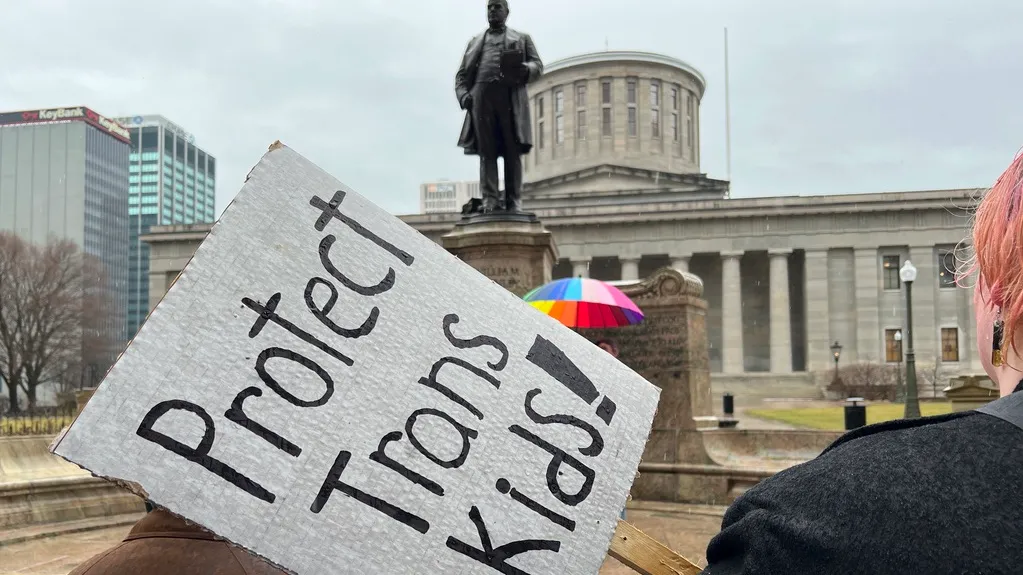January 21, 2014
Gay Marriage in Utah but Not Colorado?
Jason St. Amand READ TIME: 3 MIN.
More than two years ago, Colorado was at the leading edge of the societal shift on same-sex marriage, when its moderate, conflict-adverse Democratic governor called a special legislative session that shamed Republicans for holding up a civil unions bill. It was a rare example of Democrats going on the offensive on the issue.
Now polls find a solid majority nationwide favoring gay marriage, and a series of new laws and court victories has led to 17 states permitting it. But in Colorado this year, the discussion at the statehouse revolves around a proposal to allow couples in civil unions to file state taxes jointly, as if they were married.
The deliberate pace stems from an irony in the struggle for gay marriage -- the careful, incremental approach to the issue in places like Colorado paved the groundwork for the dramatic changes elsewhere. Indeed, Colorado gay rights supporters are not even committing yet to putting a measure on the 2016 ballot to legalize same-sex marriage.
"We should have a good run at it and not get into something so important so quickly," state Sen. Pat Steadman, a Democrat and the author of the civil unions law, said of a ballot measure for gay marriage.
The gay rights debate in Colorado dates back to 1992, when voters passed a measure barring any city or town from passing laws protecting gay rights. The state Supreme Court overturned that measure, but the state became nationally known as a place unfriendly to gay people. By 2006, however, it had a Democratic governor and legislature as social mores changed and coastal immigrants transformed its politics. Still, gay rights groups were unable to defeat a same-sex marriage ban initiative or pass a competing measure to legalize civil unions.
Kenneth Upton, the Dallas-based senior counsel for Lambda Legal, said there was skepticism about a court-based challenge to Colorado's marriage ban at the time. "No one thought these cases were going to win in the middle of the country," Upton said.
Instead, supporters spent years organizing and helping Democrats win state legislative races. Finally, last year the legislature passed the civil unions law and Gov. John Hickenlooper signed it.
Only on Oct. 31 did a gay couple file a lawsuit challenging the 2006 ballot measure that banned same-sex marriage. The existence of the civil unions law will buttress their case because they can argue they have marriage in all but name, Upton said. "It's not as heavy a lift," he said.
The legal fate of Colorado's ban could hinge instead on recent cases in Oklahoma and Utah, where federal judges struck down similar laws, though not before more than 1,000 couples married in Utah ahead of the U.S. Supreme Court staying the ruling pending appeal. The appeals of those two cases will be heard by the 10th Circuit here, and what it rules will effectively be law in Colorado.
Same-sex marriage supporters and detractors alike say the judicial system is more likely than the Colorado Legislature to change marriage policy in the near term. Democrats control both chambers, but a two-thirds majority is required to change the state constitution.
"I can count votes as well as the next legislator, and I know that's not going to get through," Steadman said.
Republicans needled him Tuesday on that point, saying the tax-filing measure Steadman sponsored belies a larger interest in changing marriage law.
"If you have the votes to change the state constitution, then do it. But you don't," said Sen. Ted Harvey, R-Highlands Ranch.
Republicans fell a vote short of defeating the tax measure, which awaits a final Senate vote.
Dave Montez, executive director of the gay rights group One Colorado, said more than marriage is at stake. It's important to have elected officials who support gay people and laws that protect the community. "There's a difference between having a marriage license and feeling comfortable enough to put a picture of your spouse on your desk," he said.
Nicolle Martin is an attorney who argued against the civil unions law and represented a Denver baker who refused to make a cake for a same-sex couple who were married in Massachussetts. She is no fan of Colorado's law, but prefers the way it came about to what courts are doing elsewhere.
"I think it's a bad policy," Martin said. "But I at least respect the process."


